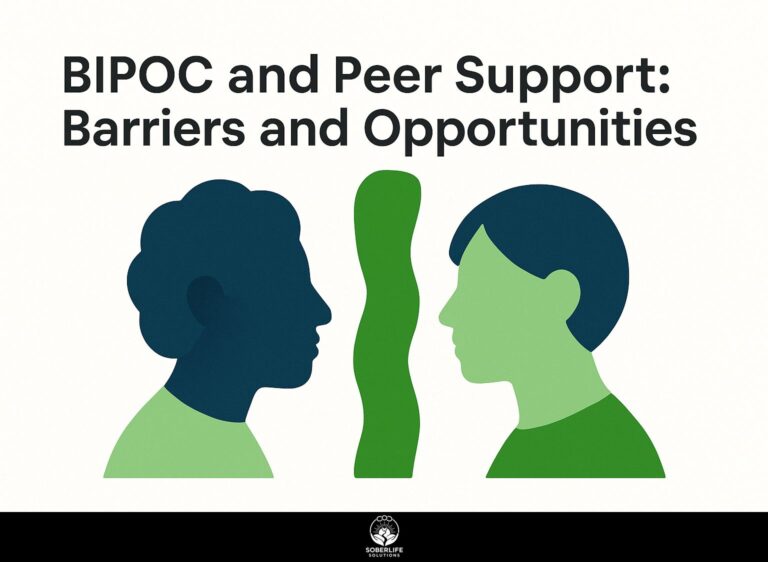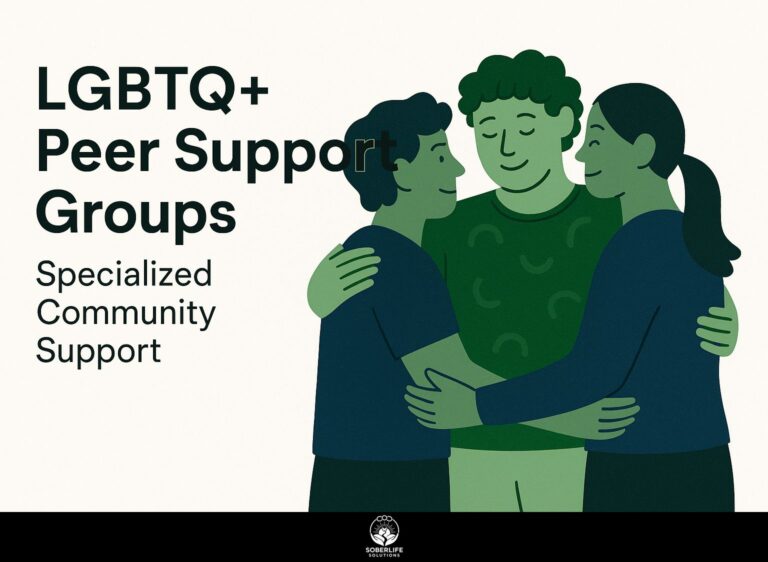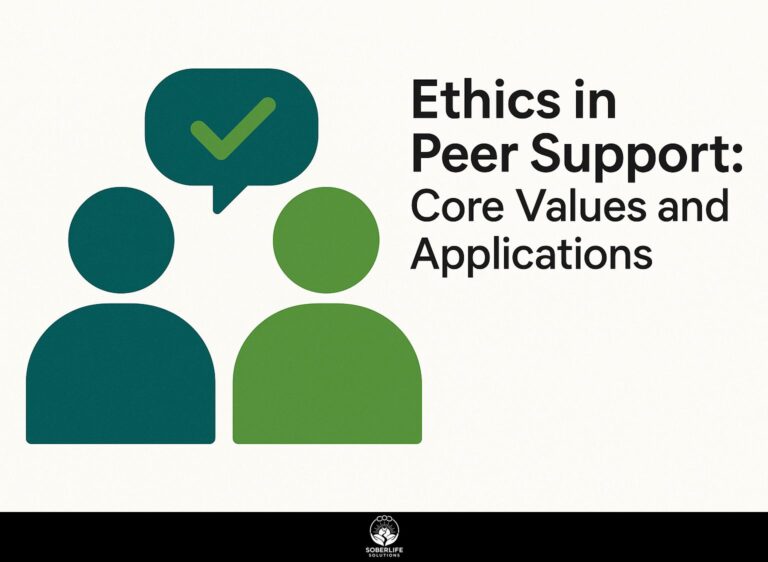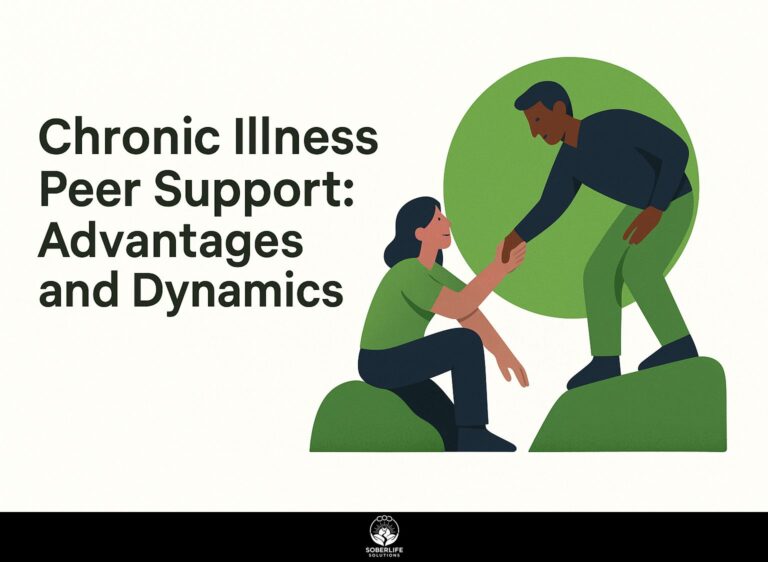Family Peer Support: Importance and Access
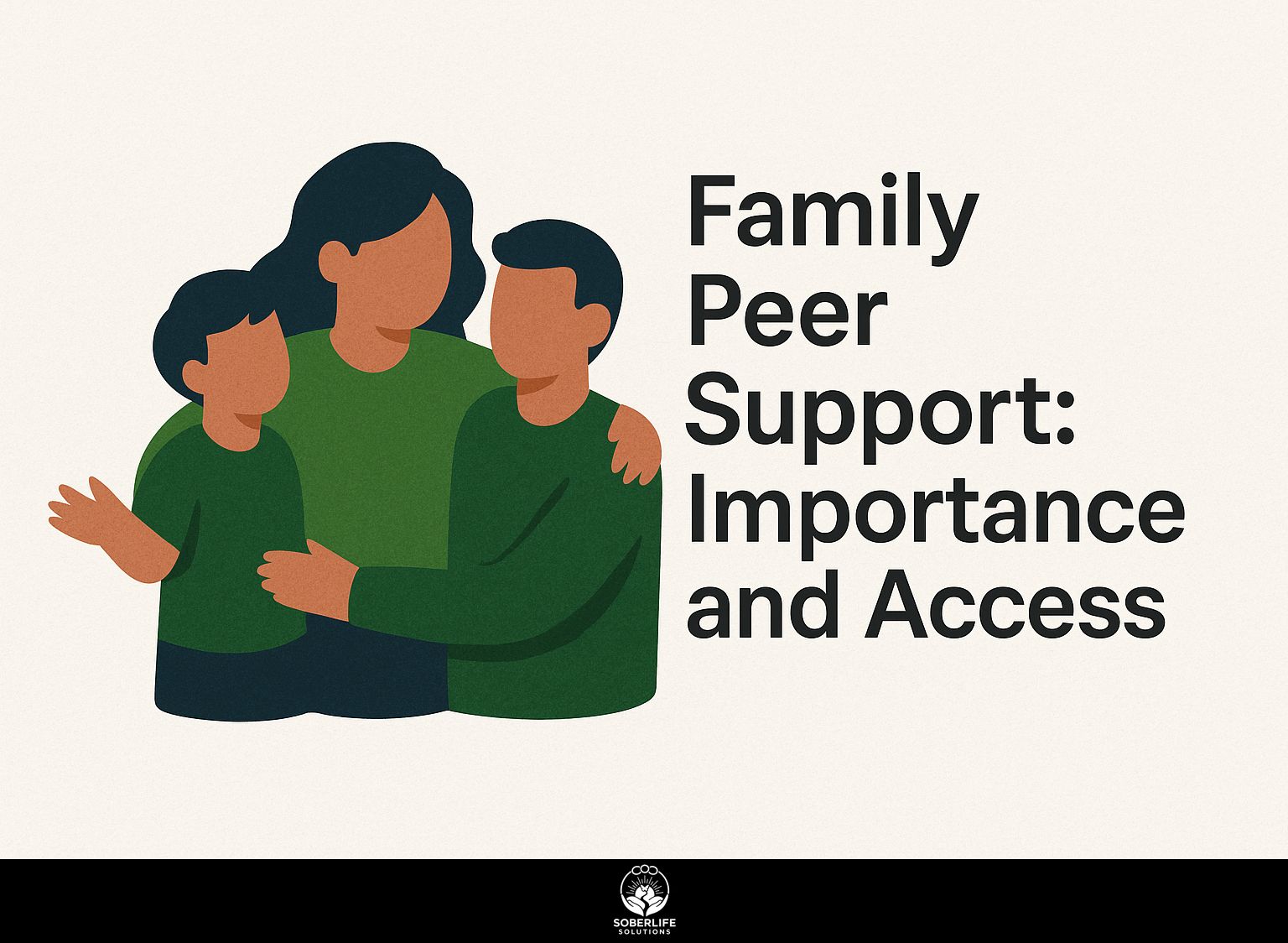
Dealing with substance use disorder can be difficult for families, so family peer support is an important resource. Family peer specialists are important in meeting family support needs by offering advice and resources for recovery support. The Substance Abuse and Mental Health Services Administration, along with research from the National Library of Medicine and National Institutes of Health, shows that effective support can greatly improve recovery. This article talks about the importance of family peer support and how to find these essential resources.
Key Takeaways:
Definition and Overview
Family peer support includes help and advice from trained family members who have faced substance use issues in their own families.
These specialists provide important information and emotional help. They have completed special training programs that give them a strong knowledge of both addiction and recovery. For those interested in the certifications that empower these specialists, our deep dive into peer support certification training offers valuable insights.
Research shows that families involved in peer support programs experience a 30% increase in engagement with treatment plans, leading to better outcomes for individuals in recovery. This aligns with findings from NAMI, which highlights the significant impact of family peer support in enhancing treatment engagement.
Family peer specialists share their personal stories to help others manage difficult feelings and deal with complicated systems, promoting teamwork in treatment.
Tools such as support groups and educational workshops help families play a meaningful role in their loved ones’ recovery process.
Historical Context
The roots of family peer support can be traced back to the 1990s, when the Substance Abuse and Mental Health Services Administration began recognizing the role of families in recovery.
This recognition spurred key developments, such as the Family Support Services program, established in 2000, which provided funding for community-based initiatives.
Programs like the National Federation of Families for Children’s Mental Health played an important role in promoting family participation in treatment choices. This role was further highlighted by a comprehensive review on ResearchGate, which examined the significance of family support in children’s mental health.
In 2014, the Affordable Care Act further emphasized family roles in mental health, mandating parity for mental health services.
Altogether, these milestones highlight the growing knowledge of family peer support, influencing policies that improve recovery through involving families.
Importance of Family Peer Support
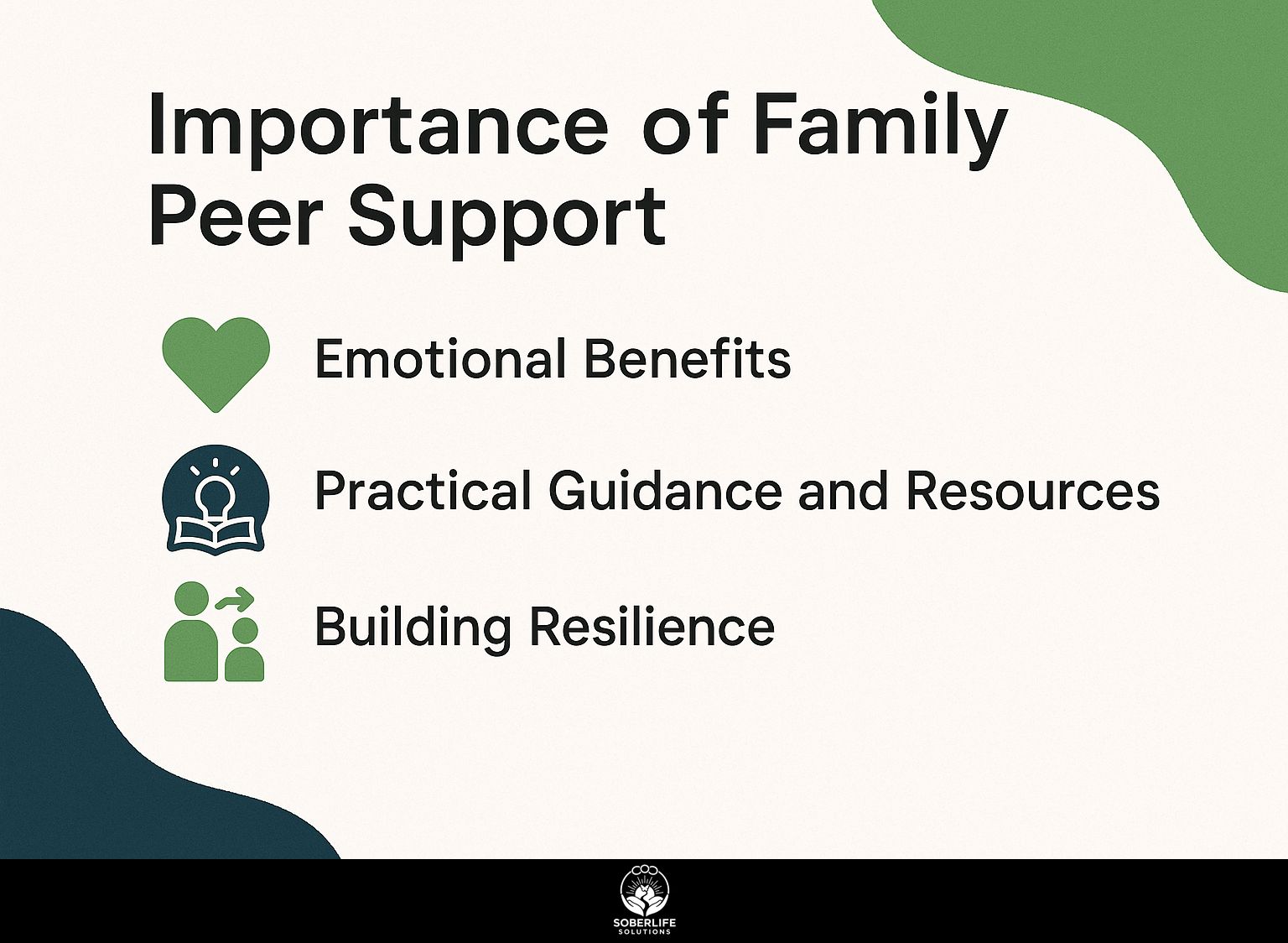
Family peer support is important for building emotional strength, offering both support and practical advice for families dealing with substance use disorders. For those interested in expanding their support networks, exploring key strategies for building effective support networks can be invaluable.
Emotional Benefits
Families engaged in peer support often report a significant reduction in feelings of isolation and an increase in emotional well-being.
This change is due to better knowledge and communication between family members. Many families find that participating in structured support programs leads to a 40% improvement in emotional resilience.
By sharing experiences in a safe environment, members develop deeper empathy and connection. For example, having regular family meetings or going to support group sessions lets everyone share their feelings, making them feel welcomed and part of the group.
Tools like family therapy apps can also facilitate openness, helping maintain ongoing conversations and check-ins even outside formal settings.
Practical Guidance and Resources
Family peer support specialists provide customized resources that give families the information needed to choose treatment options effectively.
These experts use resources like the Treatment Improvement Protocol (TIP) series from SAMHSA, with Case Western Reserve University providing thorough instructions on different treatment approaches.
They often link families with nearby support groups where sharing experiences can improve knowledge and offer emotional help.
Online platforms, such as Mental Health America and NAMI, also offer educational resources and advocacy tools, allowing families to stay informed.
By using these resources, families can take part more in treatment talks and make sure their loved ones get the best care.
Building Resilience
Participating in peer support programs helps families become stronger by providing them with ways to cope and deal with problems related to substance use.
Families can use many useful methods to become stronger.
-
Mindfulness practices such as meditation or deep-breathing exercises help reduce stress and improve emotional regulation.
-
Encouraging open communication in the family helps family members share their feelings and experiences, which can make relationships stronger.
-
For example, regular family meetings provide a safe space for discussing challenges and celebrating successes.
-
Setting up peer support groups can improve this process, as families are 50% more likely to learn effective ways to cope when they share experiences with others facing similar challenges. (our guide to building a support network provides key strategies).
Accessing Family Peer Support
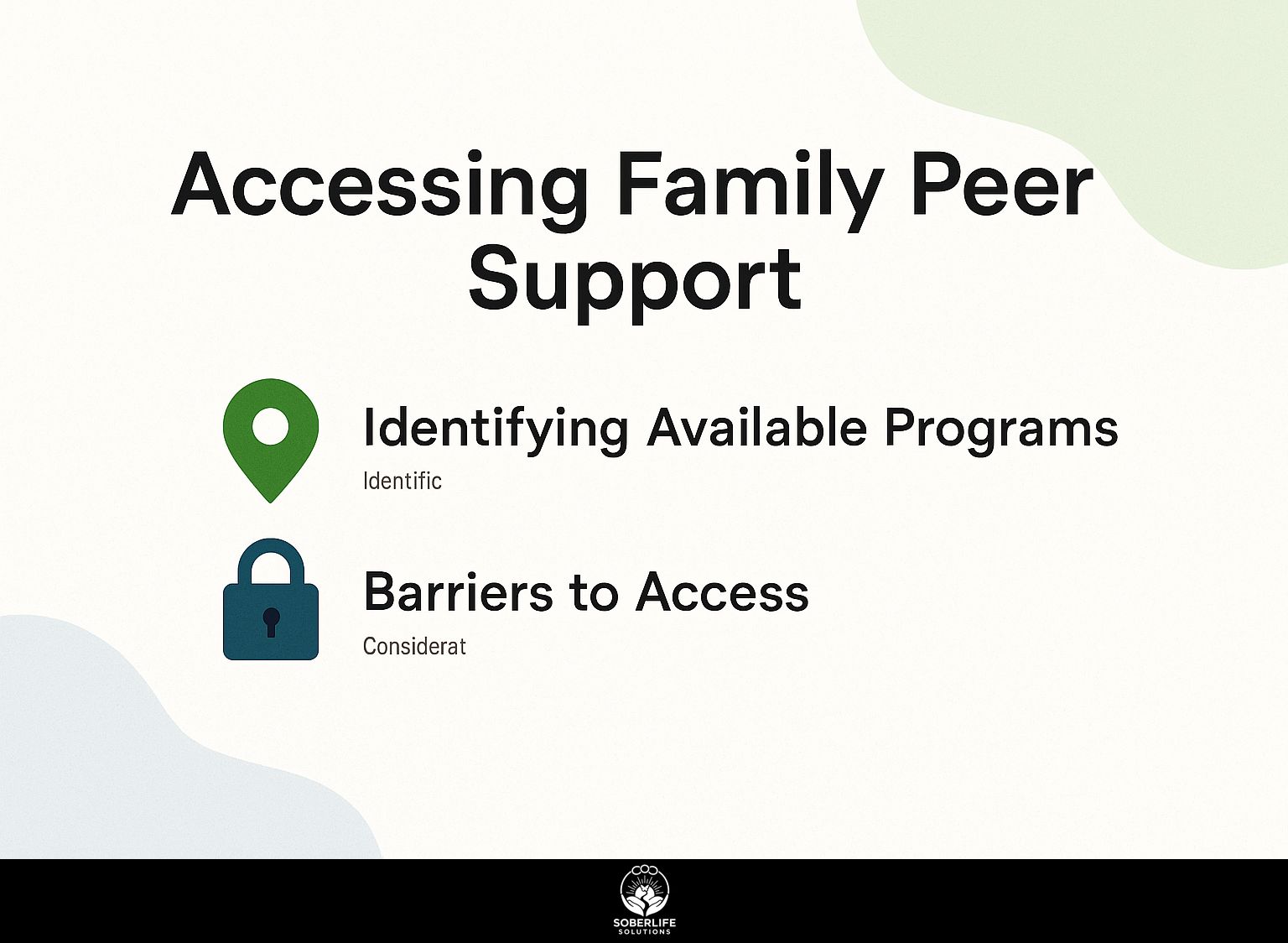
Although peer support programs can be helpful, many families find it difficult to find programs that match their specific needs. For those exploring digital avenues, virtual peer support platforms provide a flexible alternative that might better fit unique family situations.
Identifying Available Programs
Finding the right family peer support program can be challenging, but resources like the National Library of Medicine can help families locate suitable services.
To find local family peer support programs, begin by using SAMHSA’s Treatment Locator. This tool lets you search for mental health and substance abuse services by state.
Next, use the NCBI Bookshelf to find educational resources that explain the kinds of help you can get. Engage with community organizations and social media groups dedicated to family support, as they often share firsthand experiences and recommendations.
Consider attending local mental health fairs or workshops; these events frequently showcase available resources and connect families with professionals.
Barriers to Access
Common barriers to accessing family peer support include financial constraints, stigma, and lack of awareness about available resources.
To effectively overcome these barriers, families can take specific actions.
Look into community grants or insurance plans that pay for support services if money is tight.
To address stigma, think about setting up local workshops that encourage learning and acceptance of mental health issues, creating a supportive community atmosphere.
Increase awareness by collaborating with local health agencies to disseminate information on available programs through schools and social media.
These proactive steps help families and create a community that is more knowledgeable and linked together.
Best Practices in Family Peer Support
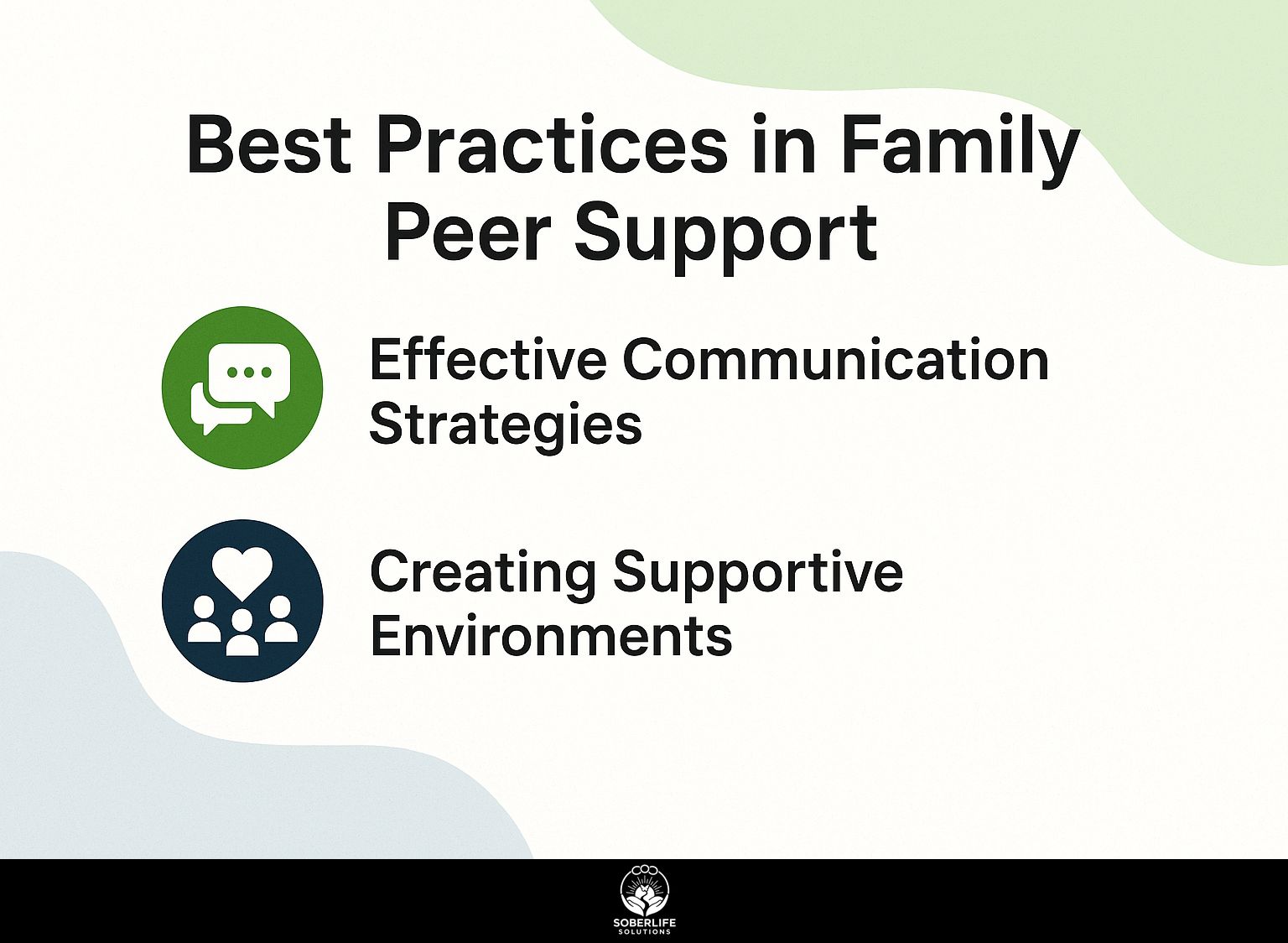
Following best practices in family peer support guarantees families get the most helpful and supportive interventions.
Effective Communication Strategies
Good communication is important in family peer support, helping family members connect better and understand each other more.
Key strategies include active listening, where you focus fully on the speaker and provide feedback, reinforcing their feelings.
Showing you care can have a strong impact-try saying, ‘I understand that must be tough for you.’ Using ‘I’ statements to share your feelings, like ‘I get concerned when…’, also helps keep blame out of the conversation and encourages open discussion.
These techniques encourage a safe environment for discussion and can lead to more meaningful conversations, allowing family members to feel heard and supported.
Creating Supportive Environments
Building a helpful setting is important for developing trust and honesty in family peer support connections.
- Start by making rules that everyone agrees on, such as maintaining privacy and avoiding judgment. For instance, programs like NAMI Family Support Groups emphasize these principles, creating a safe space for sharing experiences.
- Ensuring confidentiality can involve setting up secure communication channels, like private forums or encrypted messaging apps, where participants feel safe to express themselves.
- Creating a supportive environment means having regular meetings and promoting feedback, so everyone feels listened to and valued.
Case Studies and Success Stories
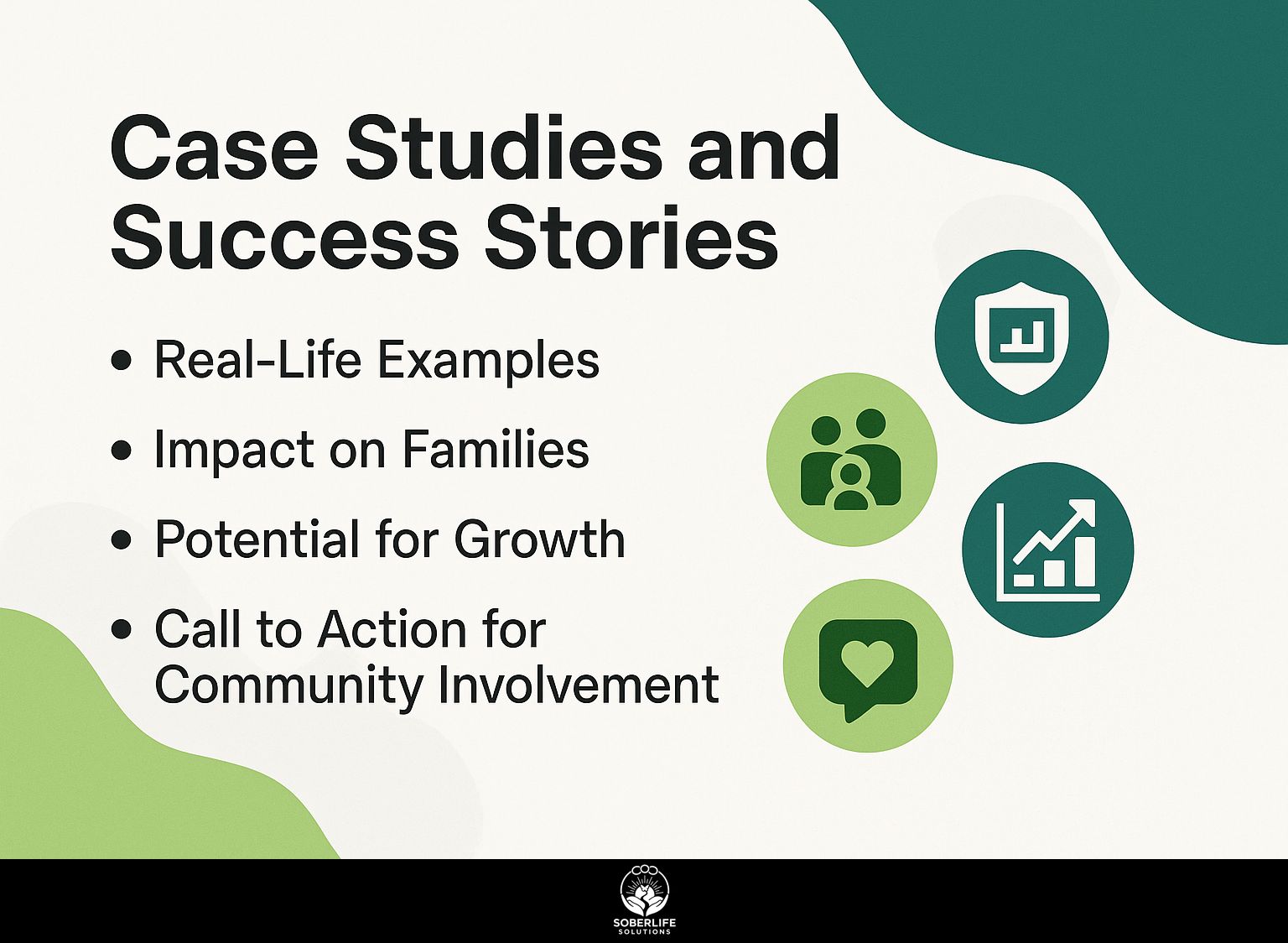
Looking at real examples shows how family peer support can greatly help families dealing with substance use disorders. For those interested in more depth, the role of peer support certification and training is critical in enhancing support services.
Real-Life Examples
A North Carolina family successfully improved their mental health and family relationships by using peer support services.
The Jones family faced significant challenges, including communication breakdowns and escalating stress due to a child’s behavioral issues. By joining support groups run by peers, they learned ways to handle conflicts and got helpful advice from other families facing similar issues.
This connection helped people feel more understood and less lonely. As a result, their mental health professionals reported a 40% decrease in anxiety levels among family members, and family interactions improved markedly, with weekly family activities increasing from once a month to three times a week.
Impact on Families
Family peer support helps individuals heal and also helps families build closer relationships and find better ways to deal with problems.
Studies show that families engaged in peer support programs experience a significant decrease in substance use issues. For instance, families reported a 30% reduction in relapse rates among loved ones.
A mother shared, “Joining the support group helped us learn about addiction and gave us practical tools for talking to each other, which made our relationships stronger.” These programs often offer resources to handle challenges together, improving family interactions and strength.
Encouraging open conversations in families can lead to long-term healing and better family relationships.
Potential for Growth
The need for family peer support is expected to increase, requiring better training and more resources for experts.
To meet this increasing need, various initiatives and funding opportunities are emerging. For example, the Substance Abuse and Mental Health Services Administration (SAMHSA) provides grants through its Community Services Block Grant program, which can improve peer support services.
Organizations like the National Alliance on Mental Illness (NAMI) are providing training programs specifically targeted at family peer support specialists. Putting money into these resources improves service delivery and helps the community become stronger, which in turn supports families dealing with difficult situations.
Call to Action for Community Involvement
Getting the community involved is important for encouraging family peer support programs, which help families speak up for what they need.
- To get involved locally, consider joining or forming a local support group where families can share their experiences and resources.
- Volunteer at local organizations that focus on mental health, such as family counseling centers or community health fairs.
- Engage in advocacy by attending town hall meetings and communicating with policymakers about the importance of family peer support.
- Online platforms, like Facebook groups dedicated to your community, can also connect you with others passionate about these issues and provide updates on upcoming events and initiatives.
Frequently Asked Questions
What is family peer support and why is it important?
Family peer support is a form of support and guidance provided by individuals who have personal experience as a family member of someone with a mental illness. It matters because it gives a special view and knowledge of the problems families deal with in these situations, and can bring relief and confidence to those looking for help.
How can family peer support benefit individuals and families?
Family peer support can benefit individuals and families by providing a safe and empathetic environment to share experiences and learn coping strategies. It can help lessen feelings of loneliness and create a sense of belonging for those dealing with mental illness in their families.
Where can I access family peer support?
Family peer support can be accessed through various organizations and support groups, both in person and online. Some examples include local mental health agencies, community centers, and online platforms such as forums and chat rooms.
Is family peer support confidential?
Yes, family peer support is confidential. All information shared in these support groups is kept confidential and members are encouraged to respect each other’s privacy. Participants may use a pseudonym to protect their identity if they wish.
Are there any costs associated with accessing family peer support?
Most family peer support programs are free of charge, although some may ask for a small donation or fee to cover materials or facilities. However, you can also find many free choices, like online support groups and forums.
Can anyone participate in family peer support programs?
Yes, family peer support programs are open to anyone who has a family member with a mental illness. These programs are typically designed to be inclusive and provide support to individuals from all backgrounds and experiences.

